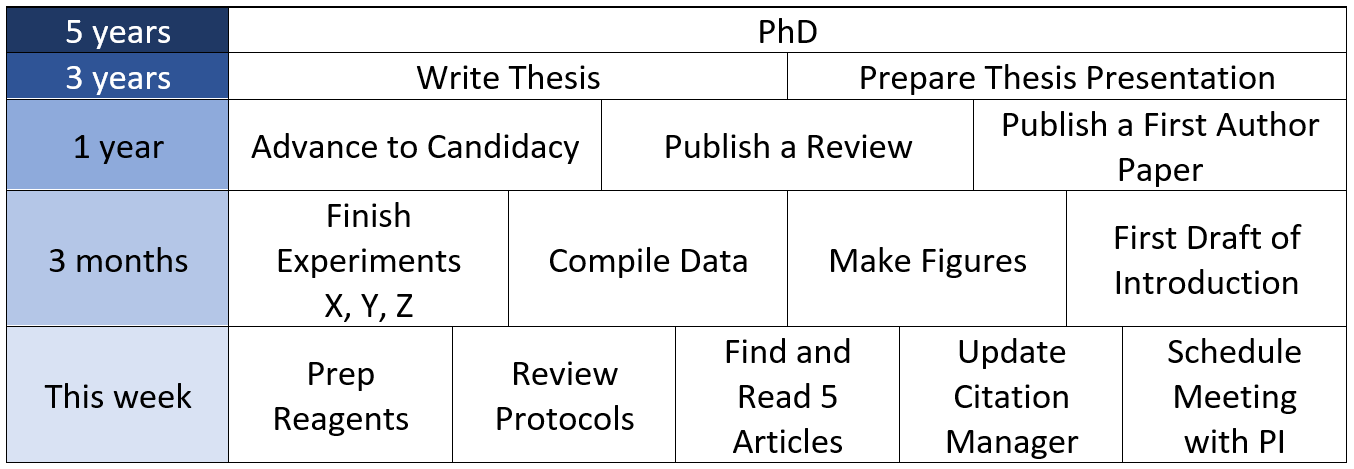Post written by guest blogger Charlesice Hawkins, Detailee within OITE.
There are times when life is a sprint and times when it is a marathon. Even a job search can feel like both! Do you set a steady pace for the long haul ahead or do you put everything you have into it for a short time? A PhD is a marathon with a few sprints embedded in it. Advancement to candidacy is one of those sprints. It can be okay to sacrifice a few hours of sleep the week leading up to that meeting, but it is not okay to sacrifice sleep, and ultimately health, for an entire 4+ year of a PhD. Progressive goal setting and planning is one strategy for achieving success without the sacrifice of mental/physical health and it can be tailored to any goal.
Steps for progressive planning:
- Generate S.M.A.R.T. goals
- Break down large goals into increasingly smaller goals
- Reflect on progress/challenges regularly
- Re-evaluate and adjust when needed
- Rinse and repeat
Planning can be overwhelming often because we tend to set huge far off goals or so many tiny tasks that its impossible to complete them all. It can help to break down larger goals into incrementally smaller ones. For example, a 5 year plan can include a 1 year plan, a 3 month plan, or even weekly and daily plans. This kind of approach can help us focus on what’s immediately tangible without losing site of the bigger picture. Below is an example of this method, but it can also be drawn or sketched as a road map or timeline as well.

If you aren’t the DIY type right now there are many options for guided journals and planners.*
Another essential component of progressive goal setting is some form of reflection. The ideal time to reflect can be arbitrary and practical or very personal. It’s the reflection and the value it holds, not the schedule that is important. Reflection is critical because it keeps us on track, but also because it allows time for re-evaluation and adjustment. Understanding that goals can change, that strategies can shift, and that we can move tasks around helps to relieve some of the pressure and stress associated with setting goals. This strategy can help us find the middle ground where there is balance and where little by little can become a lot. OITE hosts groups that touch on similar topics such as self-compassion, stress, and health for trainees.
*The NIH does not endorse these specific products and has no affiliation with the respective companies




